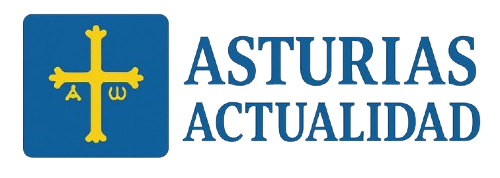The Official Gazette of the Principality (Bopa) publishes this Friday the regulatory bases for aid to investment in agricultural holdings, within the framework of the Strategic Plan for the Common Agricultural Policy (PEPAC) 2023-2027.
These aids aim to promote the profitability and professionalization of the primary sector in Asturias with improvements in its productive activity. Thus, they pay special attention to aspects such as energy efficiency, animal welfare, and the improvement of biosecurity and health, as indicated by the regional government in a press release.
The main novelty of this edition is that aid for improvement plans is divided into two categories, according to the investments to which they are dedicated and with different degrees of aid intensity.
In this way, under this regulation, three lines are regulated. One related to aids for investments in the modernization and/or improvement of agricultural holdings. The maximum is set at 65% of the eligible investment. The subsidizable investment will be up to 200,000 euros per agricultural work unit, with a maximum amount of 800,000 per holding, when the owner is a legal entity, and 400,000 in other cases.
The other line of aid is aimed at productive investments in agricultural holdings linked to contributing to the mitigation-adaptation to climate change, efficient use of natural resources, and animal welfare. These are environmental improvement plans that finance investments for improving energy efficiency, in the management and use of slurries and manures, as well as animal welfare measures. These aids can reach 80% of the eligible investment. The subsidizable investment will be up to 200,000 euros per agricultural work unit, with a maximum amount of 800,000 per holding, when the owner is a legal entity, and 400,000 in other cases.
Likewise, the third line of aid will be for non-productive investments in agricultural holdings linked to the mitigation-adaptation to climate change, efficient use of natural resources, and biodiversity. These are damage prevention measures.
As a novelty, they cover not only investments aimed at protecting livestock and crops from wild fauna (wolf, bear, wild boar, badger, and deer, among others) and invasive species, but also investments in improving biosecurity and health of livestock holdings (fencing, closures, pens, geolocation and video surveillance devices, and purchase of mastiffs among others).
They also cover communal investments promoted by associations, administrations, and other entities in livestock pens, feeding and water supply infrastructures, animal confinement, and even cleaning and disinfection centers. These aids will continue to have financing of one hundred percent of the eligible investment and a maximum amount of 40,000 euros per holding.
The three lines give priority to young people, new professionals, and women. Likewise, the aids will be compatible with the Incorporate into Agriculture plan, and the subsidies for the succession of holdings, which the Regional Commission of the Land Bank has recently convened so that beneficiaries can choose the form of support that interests them the most.
These aids are subject to the ordinary competitive concurrence procedure and are processed in accordance with the principles of publicity, objectivity, transparency, equality, and non-discrimination. All applications will be evaluated and selected according to the selection principles established in the PEPAC 2023-2027.
The Government of Asturias plans to open the application period in April or early May. The bases are available at

